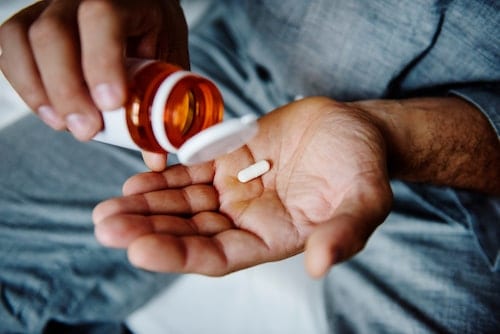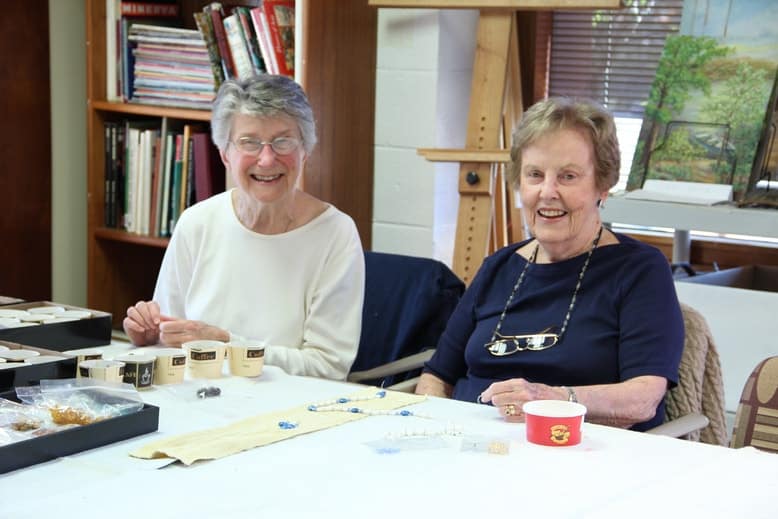Common Food and Drug Interactions to Avoid

In the United States, nearly half of all seniors take five or more medications each day. With this being the case, it is important to understand how your body can be affected when combining certain foods and medications. The more medications and herbal supplements taken each day, the more chance there may be for a potential interaction. In addition to the food we consume, it’s important to remember herbal and non-herbal supplements can also interfere with each other.
Which Food and Drug Combinations Cause Issues?
With most seniors taking at least a few different supplements or medications each day, the likelihood for an adverse interaction increases. Education is key in making sure the foods we eat aren’t working against our medications, or worse, mixing for what could be a lethal combination. In their book, Don’t Eat This If You’re Taking That, nutrition and diet expert, Madelyn Fernstrom and award-winning pharmacologist, John Fernstrom explain how certain foods and medications interact. A few common foods that can cause adverse interactions include:
Cinnamon
Taking medications for diabetes? Then you’ll want to avoid too much cinnamon. This is because much like diabetes medications, cinnamon lowers blood sugar. Too much cinnamon in tandem with diabetes medications can put your blood sugar at dangerously low levels. While you don’t have to avoid cinnamon altogether, be sure to limit your intake to a pinch for flavor.
Grapefruit Juice
Grapefruit juice has been known to increase the dosage levels of certain drugs. It’s not entirely known what in grapefruit juice causes this increase, but it can be harmful. Medications known to be influenced by grapefruit juice include: anti-seizure medications, antidepressants, benzodiazepines, calcium channel blockers, anti-arrhythmic drugs, pain medications and impotence drugs. With a list that long, you may be safest to avoid grapefruit juice altogether if you are taking medications.
Spinach and Leafy Greens
We know, you’ve been told your whole life, by your parents and Popeye, that spinach is one of the healthiest options out there. And for the most part, it is. But, when you’re taking blood thinners, beware. Spinach and leafy greens such as kale and broccoli contain vitamins K & E, which are both known to increase blood-clotting compounds. The vitamins found in these foods can reduce the effectiveness of blood thinners. Be sure to monitor your intake of these foods if you are on blood thinning medication.
Fish Oil
Fish oil is another supplement to avoid if you are on blood thinners. In large doses, fish oil can act as a blood thinner itself. When on blood-thinning medication, taking fish oil can thin the blood too much, causing a variety of issues. That doesn’t mean you’ll have to give up your favorite seafood meal, however. Consuming a typical serving size of fish only exposes us to small amounts of fish oil, making it safe to consume in moderation, even if you are on a blood thinner.
Milk, Dairy Products, and Calcium Supplements
Those taking medications for high blood pressure should avoid calcium rich foods. These medications contain what’s called calcium channel blockers, meant to lower blood pressure. Ingesting too much calcium can work against these medications. When taking medication for high blood pressure, be sure to limit your daily intake of calcium to under 1,000 milligrams.
Alcohol
This should already be pretty common knowledge: drugs and alcohol don’t mix. If you are on antidepressants, mixing them can be especially harmful. Monoamine oxidase inhibitor (MAOI) antidepressants block the breakdown of enzymes in alcohol such as red wine. These enzymes can cause an unhealthy rise in blood pressure. Other medications that are adversely affected by alcohol include medications for Parkinson’s and those containing acetaminophen, like Tylenol.
A Final Note
As you’ve just read, even foods traditionally seen as healthy can cause some serious side-effects when taking medications. While above we’ve listed common food and drug interactions – these are not all. As always, it’s best to talk to your medical provider regarding what foods and supplements you should avoid before starting any new medications.
Improving Whole-Person Wellness for a Beautiful Life at Meadow Lakes
At our continuing care retirement community in East Windsor, New Jersey, we care for your mind, body and spirit. With our award-winning LivWell program, you’ll enjoy countless opportunities to enrich your life in all seven dimensions: physical, emotional, intellectual, social, spiritual, environment and vocational. If you’d like to learn more about whole-person wellness at Meadow Lakes, or are interested in checking out our living options, we’d love to take you on a personal tour. Please contact us today.




